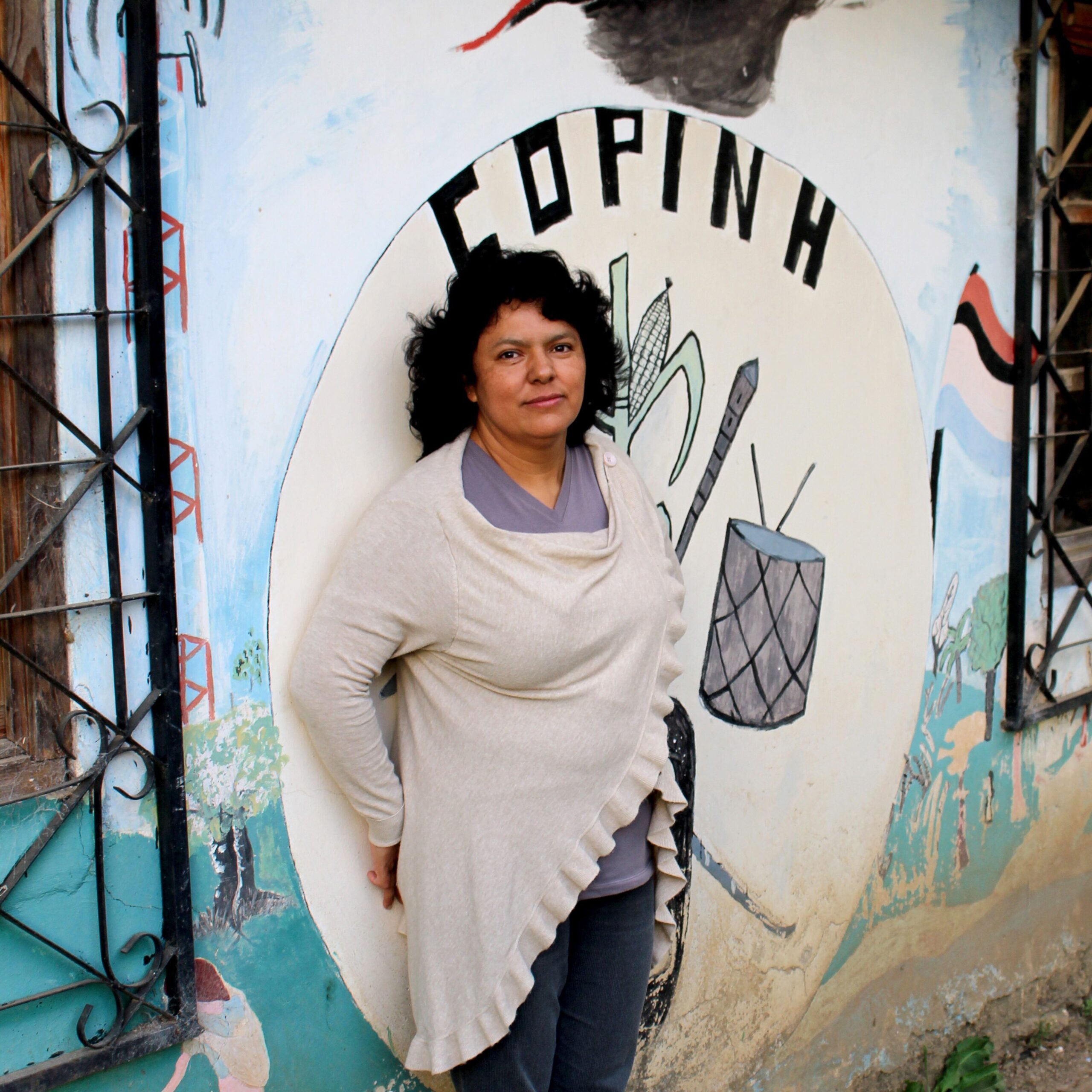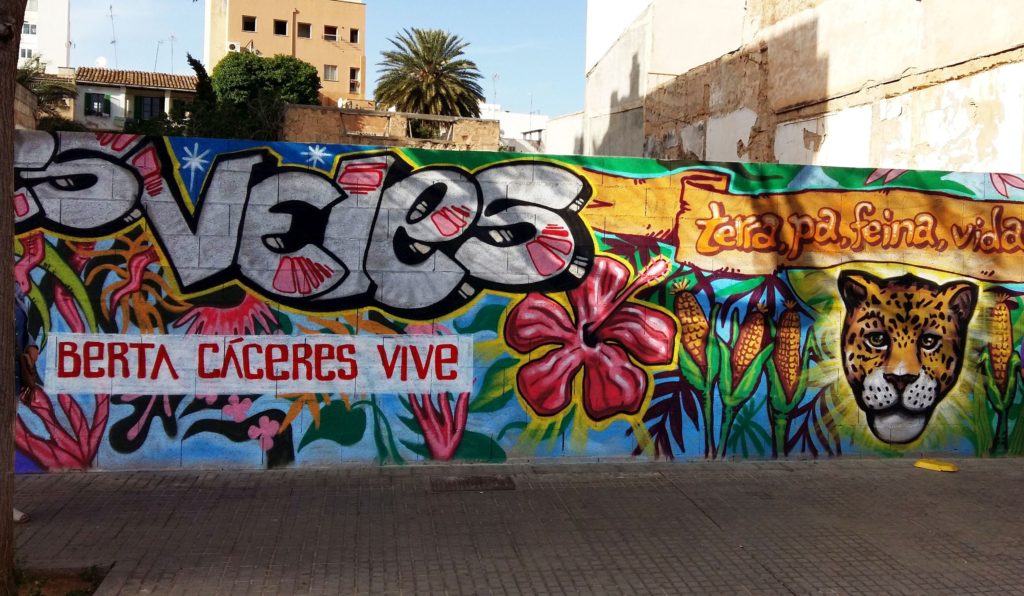“They are afraid of us because we are not afraid.”
–Berta Caceres.
By Kate Fried
Today marks the ninth anniversary of the tragic assassination of our friend, Berta Caceres. She was gunned down in her home after multiple threats against her life. A Lenca-Honduran environmental activist, Indigenous leader, and Goldman Prize winner, Berta is best known for launching a grassroots campaign to oppose the potentially destructive 22-megawatt Agua Zarca Dam in western Honduras. The Agua Zarca project was led by the dam builder Desarrollos Energéticos SA (DESA), a company with close ties to the Honduran military that had orchestrated an intimidation campaign against Caceres.
Berta knew that her life was in danger. For years, rumors swirled that she had been placed on a hit list. Her phone was tapped. Men in unmarked cars followed her. In the days leading to her assassination, she received ominous messages and calls telling her to end her campaign, threatening violence if she continued her work. She spent her final days making arrangements for her organization, the Civic Council of Popular and Indigenous Organizations of Honduras, which she co-founded, so her colleagues could continue on in the event of her death.

Yet despite the dangers that Berta navigated in her activism, she bravely advocated for her river, people, and community. Born in 1971 in La Esperanza, Berta dedicated her life to activism, organizing student movements as a teenager before focusing her work on upholding the Lenca People’s cultural traditions. She’s widely respected in Honduras for reviving Lenca traditions that had partially fallen out of practice in the modern age. Berta’s resistance to the Agua Zarca Dam grew out of the Lenca peoples’ deep spiritual connection to the Gualcarque River, which serves as a source of food, water, medicine, and spirituality for their culture.
She also worked in opposition to colonialism and capitalism, resisting efforts to exploit land and water for financial gain. The controversial Atala family, who owns DESA, has deep ties to the Central American Bank for Economic Integration (CABEI), which helped finance the project. An audit conducted by the Organized Crime and Corruption Reporting Project and Columbia Journalism Investigations found that the Atala family may have used back channels to secure USD 24.4 million in financing from CABEI while the bank ignored warnings of the dam’s potential environmental harms.
For years, the Lenca people and allies including International Rivers raised concerns over Agua Zarca’s potential human rights violations. Sinohydro, at the time, China’s biggest state-owned dam builder, which had an early stake in the project, pulled out in 2013 after an assessment found that Agua Zarca violated the UN’s Guiding Principles on Business and Human Rights. Two other financiers, the Netherlands Development Finance Institution and the Finnish Fund for Industrial Cooperation would take longer to withdraw their support but finally pulled out of the project after Berta’s death, and the subsequent assassination of fellow COPINH activist Nelson Garcia ignited an international outcry, although they denied DESA’s involvement in illegal activities.
For Berta, the struggles for Indigenous rights and against racism and capitalism were interrelated. In challenging dams on her beloved Gualcarque River, she wasn’t just opposing isolated development projects–she was confronting a global system that subjugates human rights in favor of profits.
Following her death, Berta’s surviving family members fought for justice. Their advocacy resulted in seven convictions, including that of former DESA manager, Sergio Ramón Rodríguez Orellana. Last month, the Honduran Supreme Court upheld a 30-year prison sentence for Orellana, recognizing his role in her murder. Yet despite this victory, the intellectual architects of her assassination have not been held accountable for their crimes.
While Berta’s death sparked international outrage, her assassination is far too common among defenders, and many of their stories are never shared with the world. Berta Caceres was one of 200 people killed for defending the environment and their lands in 2016. Worldwide, those who defend rivers, forests, and lands face intimidation, violence, and in some cases, death. Defenders in Latin America are particularly vulnerable. In 2013, Colombia had the highest number of killings worldwide–with 79 defenders killed that year, followed by Brazil (25), Mexico (18), and Honduras (18), according to the group Global Witness.

“Berta’s legacy endures, reminding us that the fight for environmental justice is far from over,” said Monti Aguirre, Latin American Program Coordinator for International Rivers, who was a friend of Caceres. “Her life and work continue to inspire global movements dedicated to protecting Indigenous rights and our planet’s vital ecosystems.”

